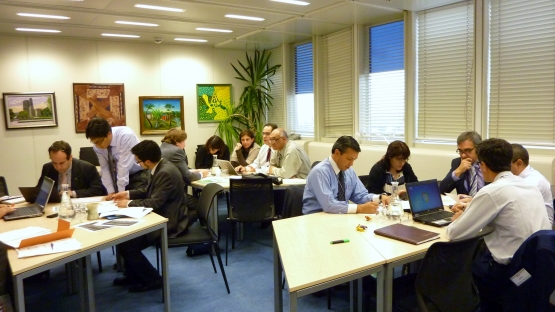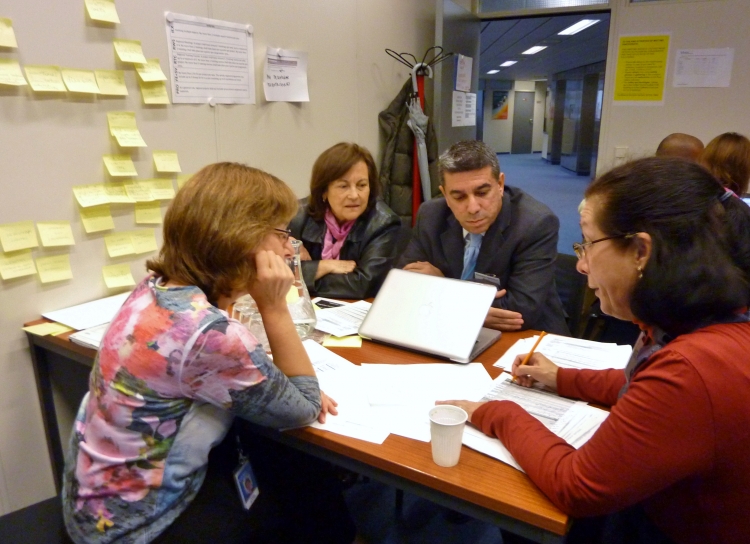Team members, regional experts, partners and IAEA project support staff have met in Vienna to review and improve project design proposals submitted by Member States from the Latin America region for the IAEA's 2014-2015 technical cooperation (TC) programme cycle. The 42 workshop participants, including project team members from the region, experts in the field under discussion, staff from the IAEA and potential partners, focused on reviewing and enhancing the initial design of 16 proposals for regional projects in Latin America.
The participation of potential partners, representing the European Commission, United States Nuclear Regulatory Commission (USNRC), the Consejo de Seguridad Nuclear and the Intergovernmental Oceanographic Commission (IOC), is an important and exciting step forward in securing partner engagement in the IAEA's technical cooperation activities in a more structured and systematic manner. Jack Ramsey of the USNRC explains the importance of his organization's participation in the planning workshop: "This meeting in particular is a very good opportunity for us, and builds upon country specific activities by identifying common needs amongst the various countries and working them into a regional approach. It puts us in a position where within the NRC programme we can find out how best to support the IAEA's efforts and conversely the IAEA can help us better our bilateral efforts as well."
Over the course of the workshop, participants worked together in four thematic groups to review the initial project designs already prepared. Each group concentrated on a particular topic: human health, food safety, environment and radiation safety. The group on food safety was split into two to deal with the high volume of projects submitted, and to develop a 'flagship project' on the topic.
"In my group we are focusing on food and agriculture, in my particular case we are looking to apply new innovative nuclear technologies to identify hot spots of land degradation in South America. As a scientist you don't really know how your project is going to impact a society. So here I am learning how to represent that, which, for me, is useful and a good experience" says Claudio Bravo-Linares, the designated team member from Chile.




